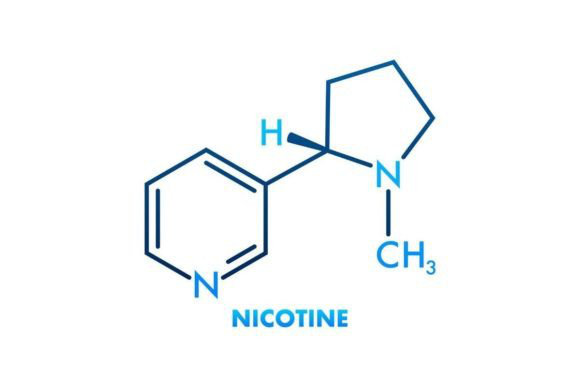How Effective is Modafinil for Chronic Fatigue Syndrome?
Chronic Fatigue Syndrome (CFS) is a complex condition marked by severe, unexplained fatigue that worsens with activity and doesn’t improve with rest. Modafinil, originally developed for narcolepsy, has gained attention as a potential treatment for CFS. Its effectiveness in managing symptoms has been examined through studies and user experiences, offering a nuanced perspective on its potential benefits and limitations.
Understanding Chronic Fatigue Syndrome (CFS)
Definition and Symptoms
Chronic Fatigue Syndrome, or Myalgic Encephalomyelitis (ME/CFS), is defined by persistent and debilitating fatigue. Other symptoms include muscle and joint pain, headaches, unrefreshing sleep, and cognitive impairments like difficulty concentrating and memory problems. The exact cause of CFS remains unknown, and it often overlaps with other conditions, making diagnosis challenging.
Prevalence and Demographics
CFS affects an estimated 0.4% to less than 2% of the population, with a higher prevalence in women. In the UK, approximately 250,000 individuals are affected, and in the USA, the number is estimated to be around 4 million. The condition can affect people of all ages, but it is most commonly diagnosed in adults aged 40 to 60.
Economic and Social Impact
The economic impact of CFS is significant, with costs ranging from £755 to £1,289 million annually in the UK and $18 to $24 billion in the USA. Beyond the financial burden, CFS severely impacts the quality of life, leading to long-term disability, loss of employment, and social isolation.
Current Treatment Options and Their Limitations
Current treatment options for CFS include cognitive behavioural therapy (CBT), graded exercise therapy (GET), and various pharmacological treatments. However, these treatments often provide limited relief. CBT and GET aim to improve coping strategies and physical fitness but are not always effective for all patients. Pharmacological therapies, such as antidepressants, have shown minimal benefits in addressing the core symptoms of CFS.
Modafinil: An Overview
Chemical Composition and Mechanism of Action
Modafinil is a central nervous system stimulant with a unique mechanism of action. Unlike traditional stimulants like amphetamines, Modafinil selectively targets specific areas of the brain involved in wakefulness, such as the hypothalamus, amygdala, and hippocampus. It enhances wakefulness by increasing the release of neurotransmitters like dopamine, norepinephrine, and glutamate, while also reducing the levels of gamma-aminobutyric acid (GABA), a neurotransmitter that inhibits neuronal activity.
Approved Uses
Modafinil is approved for treating narcolepsy, obstructive sleep apnea, and shift work sleep disorder. Its wakefulness-promoting properties make it effective in helping patients stay awake and alert during the day, improving their overall functioning and quality of life.
Off-Label Use for CFS
Given its stimulating properties, Modafinil has been explored as an off-label treatment for CFS. Some studies and patient reports suggest that Modafinil can help alleviate the severe fatigue and cognitive impairments associated with CFS, though its efficacy and safety for this use remain under investigation.
Modafinil and Cognitive Behavioral Therapy (CBT) in CFS
Case Studies and Clinical Trials
Several case studies and clinical trials have investigated the combined use of Modafinil and CBT in treating CFS. For instance, a BMJ case report reviewed three patients with treatment-resistant CFS who showed significant improvements when treated with Modafinil alongside CBT. The patients reported increased energy, reduced pain, and improved concentration, leading to social recovery and a return to work or full-time training.
Combined Effect of Modafinil and CBT
Improvements in Energy Levels, Pain, and Concentration
The case studies highlighted that Modafinil, when used in conjunction with CBT, led to a noticeable improvement in energy levels, reduction in pain, and better concentration in patients who had not responded to CBT alone.
Social Recovery and Return to Work/Training
Two out of three patients in the BMJ case report achieved social recovery, defined as returning to work or full-time training. This indicates that the combination of Modafinil and CBT can have a profound impact on the daily lives and functional abilities of CFS patients.
Patient Testimonials and Personal Experiences
Patient testimonials from various sources, including user reviews on Drugs.com, corroborate these findings. Many patients reported that Modafinil helped them regain their energy and functionality, allowing them to resume normal activities and improve their quality of life. However, there were also reports of negative experiences and side effects, which will be discussed in later sections.
Efficacy of Modafinil in CFS: Mixed Results
Summary of the Citeseerx Study
A study available on Citeseerx indicated that the cognitive effects of Modafinil in CFS patients were mixed. While some cognitive tasks showed improvement, others did not, and there were no significant effects on self-ratings of fatigue, quality of life, or mood. The study suggested that the results might have been influenced by insufficient statistical power or the specific characteristics of the patient subgroup.
Detailed Analysis of the PubMed Study
Study Design and Methodology
The PubMed study involved a double-blind, placebo-controlled crossover trial with 14 CFS patients. Participants were given 200 mg and 400 mg doses of Modafinil over 20-day treatment periods, with a two-week washout period between treatments.
Primary and Secondary Outcomes
The primary aim was to assess the effects of Modafinil on cognition, while secondary outcomes included self-ratings of fatigue, quality of life, and mood. The results were mixed, with some cognitive tasks showing improvement and others showing no significant change.
Cognitive and Mood Assessments
The study found that Modafinil had varying effects on cognitive tasks. For instance, a 200 mg dose reduced the latency to correctly detect sequences in a sustained attention test, while a 400 mg dose increased the number of missed targets. In other cognitive tasks, such as spatial planning, the effects were similarly mixed. There were no significant improvements in self-ratings of fatigue, quality of life, or mood.
User Reviews from Drugs.com
Positive Experiences
Many users on Drugs.com reported positive experiences with Modafinil for CFS. They noted increased wakefulness, improved energy levels, and better overall functionality. Some users described Modafinil as a “miracle drug” that helped them regain their lives.
Negative Experiences and Side Effects
However, not all experiences were positive. Some users reported side effects such as headaches, anxiety, increased heart rate, and difficulty sleeping. A few users developed a dependency on the drug, leading to withdrawal symptoms when they tried to stop using it.
Overall User Ratings
The average rating for Modafinil in treating CFS on Drugs.com was 6.5 out of 10, with 54% of reviewers reporting a positive experience and 22% reporting a negative one. This indicates that while Modafinil can be effective for some patients, it may not be suitable for everyone, and individual responses can vary widely.
Potential Benefits of Modafinil for CFS
Increased Wakefulness and Reduced Fatigue
Modafinil is primarily known for its ability to promote wakefulness. In patients with CFS, this can translate into significantly reduced daytime fatigue, allowing them to stay alert and active for longer periods. This improvement in wakefulness is often the first noticeable benefit reported by patients.
Enhanced Cognitive Function
CFS often comes with cognitive impairments, sometimes referred to as “brain fog.” Modafinil has been shown to improve certain aspects of cognitive function, such as attention, memory, and executive functioning. Although the results from various studies are mixed, some patients experience marked improvements in their cognitive abilities, which can help them perform daily tasks more effectively.
Improved Quality of Life and Daily Functioning
By reducing fatigue and enhancing cognitive function, Modafinil can significantly improve the overall quality of life for CFS patients. Many individuals report being able to return to work, engage in social activities, and manage their daily routines better. This boost in functionality can lead to greater independence and a more fulfilling life.
Analgesic Effects and Pain Management
Some studies and patient reports suggest that Modafinil may also help in managing the pain associated with CFS. The combination of increased activity levels due to reduced fatigue and the potential analgesic effects of Modafinil can contribute to lower pain levels and improved physical comfort.
Risks and Limitations of Modafinil for CFS
Side Effects
While Modafinil can be beneficial, it also comes with potential side effects. Common side effects include headaches, nausea, nervousness, dizziness, and difficulty sleeping. Some patients may also experience increased anxiety and heart rate. These side effects can sometimes outweigh the benefits, leading patients to discontinue use.
Potential for Abuse and Dependency
Modafinil has a potential for abuse and dependency, particularly because of its stimulating effects. Some patients have reported becoming dependent on the medication, experiencing withdrawal symptoms when trying to stop. This dependency can complicate treatment and necessitate careful monitoring by healthcare providers.
Regulatory Restrictions and Insurance Challenges
Modafinil is classified as a Schedule IV controlled substance in many countries, including the USA. This classification indicates a potential for abuse and limits its availability. Additionally, insurance companies may not cover Modafinil for off-label uses like CFS, leading to high out-of-pocket costs for patients.
Mixed Efficacy and Individual Variability in Response
The efficacy of Modafinil in treating CFS is not uniform across all patients. Some individuals experience significant benefits, while others see little to no improvement. This variability in response makes it difficult to predict who will benefit from the treatment. Further research is needed to identify the patient characteristics that predict a positive response to Modafinil.
Clinical Recommendations and Future Research
Guidelines for Modafinil Use in CFS Patients
For CFS patients considering Modafinil, it is crucial to consult with a healthcare provider to determine if it is an appropriate option. The decision should be based on a comprehensive evaluation of the patient’s medical history, symptom severity, and previous treatment responses. Starting with a low dose and gradually increasing it can help minimize side effects.
Importance of Tailored Treatment Plans
Given the variability in response, treatment plans should be tailored to each patient. This includes combining Modafinil with other therapeutic approaches like CBT and GET. Regular follow-ups are essential to monitor the effectiveness and adjust the treatment as needed.
Need for Large-Scale, Long-Term Randomized Controlled Trials
To provide more definitive evidence on the efficacy of Modafinil for CFS, large-scale, long-term randomized controlled trials are needed. These studies should include diverse patient populations and use standardized outcome measures to assess both the benefits and risks of Modafinil.
Potential Areas for Further Investigation
Future research should explore the mechanisms by which Modafinil affects CFS symptoms, identify biomarkers for predicting treatment response, and investigate the long-term safety of Modafinil use in CFS patients. Additionally, studies should look into the potential benefits of combining Modafinil with other pharmacological and non-pharmacological treatments.
Conclusion
Summary of Key Findings
Modafinil has shown promise in treating some symptoms of Chronic Fatigue Syndrome, particularly in improving wakefulness and cognitive function. While many patients report significant benefits, the response to Modafinil is highly individual, and the medication comes with potential risks and side effects.
Final Thoughts on Modafinil’s Role in CFS Treatment
Modafinil can be a valuable addition to the treatment options for CFS, especially for patients who have not responded to other therapies. However, its use should be carefully considered and closely monitored by healthcare providers. Combining Modafinil with other treatments like CBT may enhance its effectiveness and lead to better patient outcomes.








